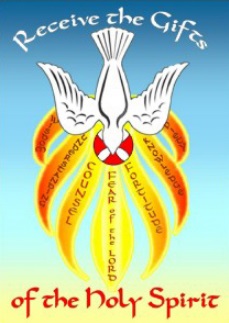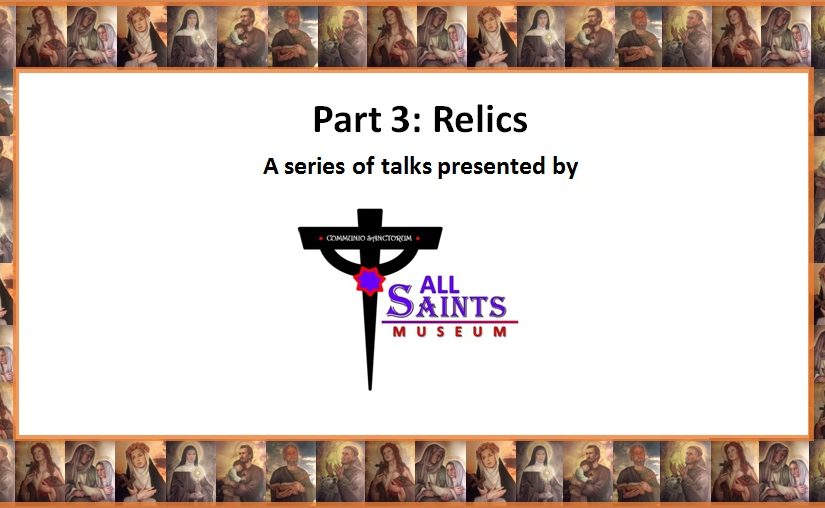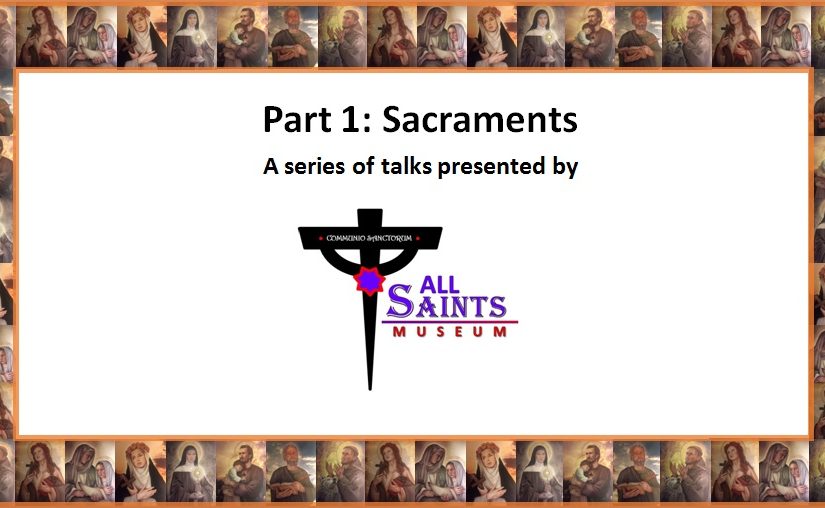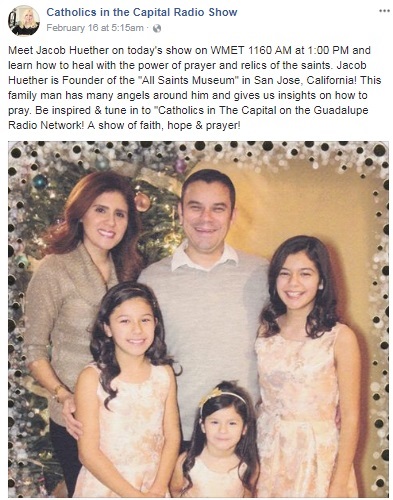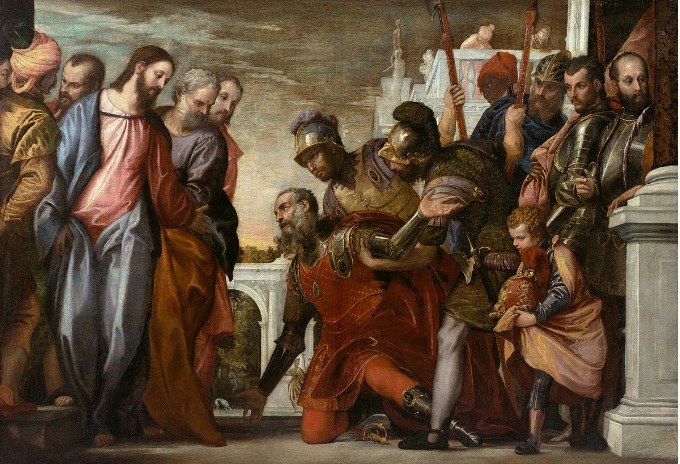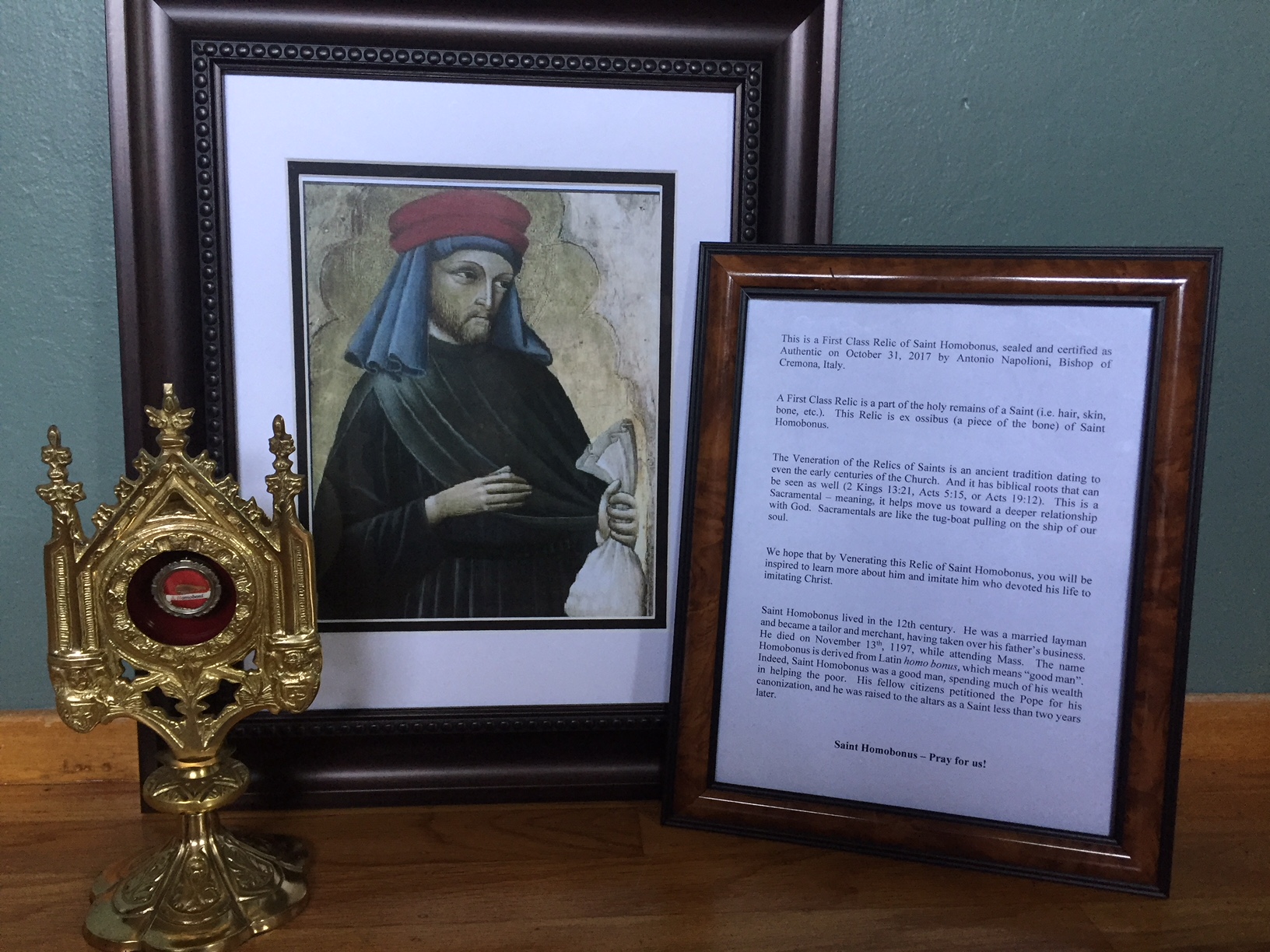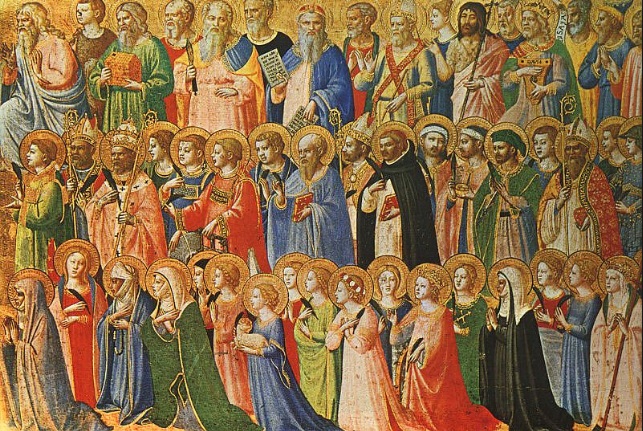As All Saints Day approaches, I wanted to offer some thoughts on why we as Catholics believe in the Communion of Saints (Communio Sanctorum), and why in particular we believe that our prayers to them and friendship with them is efficacious.
There are a couple arguments against these uniquely Catholic beliefs, which I would like to address in their honor:
Why pray to the Saints if we can go directly to God?
The better question to ask is: Why has God used Angels (messengers), Prophets, and Apostles, family and friends, to relate with us throughout the entire history of human existence if He can go directly to us Himself? And the response to this is very simple…. He wants to.
This is the same response to why we work with the Saints and Angels in a similar way to communicate with God. – He wants us to.
Granted, we do go directly to God as well, and He does communicate with us directly at His discretion (like when he talked with Moses face to face Exodus 33:11). This is not a strict either / or. Our relationship with God and His family is both / and.
Sometimes we don’t know why God chooses to do things certain ways, because “His ways are higher than mine” (Isaiah 55:8-9). But even when we don’t understand, we believe that He knows what is best for us. He has our best interest in mind.
It is evident in Scripture that God wants us to work with each other and for each other. Take for instances when Jesus was still just a baby:
(Matthew 2:13) When they had gone, an angel of the Lord appeared to Joseph in a dream. “Get up”, he said, “take the child and his mother and escape to Egypt.”
God could have done things a lot different to get the Holy Family to go to Egypt. He could have sent the angel to Mary, as He had just sent the angel Gabriel to her before. Why Joseph? Or why did He use an angel? God could have talked directly to Mary (like He did with Moses). But we can see that God LOVES to use His creation in this way. He wanted Joseph to be an integral part of His Holy Family. God always uses His angels as messengers. And He always uses people in the same way. He wants us connected and working together. That’s why Saint Paul refers to us as the Body of Christ (1 Corinthians 12:27). We are a Body with different members able to do different things to all help in achieving the same goal – the sanctity of our human race!
God created the earth as a reflection of what Heaven is like. And so we know that Heaven isn’t too far from earth. Family is family. Jesus is our brother through Baptism. God is our Father. We are not orphans, but Children of God. God created us to work with each other. When God made Adam, He said “It is not good for man to be alone” (Genesis 2:18). So, how we relate to our mothers and fathers, our sisters and brothers, our friends, etc. That is not different than how we should relate in Heaven to God and the Angels and Saints. But just all in their proper order.
We have a different relationship with our dads as we do with our brothers. And the same is true with God and the Saints. I would never worship a Saint. I only worship and praise God. But Jesus wants us to have relationships with His family, His mother Mary, His friends the Saints. God wants us to know the Angels also. They are given to us by God for our help(Matthew 18:10). All of these things God has given to us to work together in order to Glorify Him through Christ Jesus.
Once a person dies, how can we communicate with them since they cannot hear us?
We believe that death does not separate us from our family and friends in Christ. On the contrary, we believe that when we die in a state of Grace and friendship with God, then our ability to pray for each other only increases!
Saint Paul says (Romans 8:38) “For I am convinced that neither death nor life… will be able to separate us from the love of God that is in Christ Jesus our Lord.” As humans, we are both body and soul. When we die, our soul still exists. Only our physical body is gone, but the “person” is still alive. Especially for those who have died in the Grace and friendship of God. So when Jesus said, “the Kingdom of God is among you”, He is saying that if we order our lives in Christ now, then this is how Heaven is.
Additionally, Jesus admonishes the Pharisees when He tells them “He is not the God of the dead, but of the living” speaking of Abraham, Isaac and Jacob (Mark 12:27). So we know that the Saints in Heaven are living in this same way.
In all of this, our greatest desire is to Love God. This is the first and greatest Command – “Love the Lord your God with all your heart”. If we accept Christ and what he did for us (the Cross), and we do our best to Love Him, then really everything else falls into place. “Seek ye first the Kingdom of God, and His righteousness, and all these things will be added unto you”. (Matthew 6:33)
Meditating on the Transfiguration of Jesus (Mark 9, Matthew 17, and Luke 9). This is where we can see the meaning of Jesus being God and man. Because He brings Heaven to earth for our benefit. This was His primary mediation. Jesus takes His best friends, Peter, James and John, with Him up a mountain. Then Jesus is transfigured before them, and His clothes became dazzling white, and He was with Moses and Elijah talking with them. It is like God introducing His Old Testament friends to His New Testament friends. Moses and Elijah represent the Law and the Prophets. Moses brought the Law (the Commandments) and Elijah was one of the greatest Prophets (even John the Baptist came in the spirit of Elijah). So these two figures represent together the Love of God – because Jesus says the Law and the Prophets hang on the Love of God. When Jesus was asked what the Greatest Command was He replied “’Love the Lord your God with all your heart and with all your soul and with all your mind.’This is the first and greatest commandment.And the second is like it: ‘Love your neighbor as yourself.’ All the Law and the Prophets hang on these two commandments.”
So we see that in Loving God with all our hearts, just as He commands, it is a fulfillment of the Law and the Prophets (Moses and Elijah). The Transfiguration, therefore, was a demonstration of the Kingdom of God, the union of earth and Heaven. The Law and the Prophets meeting the New Church. You could think of the Transfiguration as God lifting the veil a little, to give us a peak at what He sees. Heaven is where are hearts are – (Matthew 6) “For where your treasure is, there your heart will be also”. And although Moses and Elijah had lived long ago, they were still alive in Christ, and fulfilling their mission through the Love of God.
Jesus told us to pray – “Thy kingdom come, Thy will be done, on earth as it is in Heaven”. This is what Jesus meant, that in the Love of God, the Kingdom and the Will of God will be done on earth just like in Heaven.
As members of the Body of Christ, the Saints still actively participate in helping us to make it to Heaven with them! Our relationship with God is much more complete and better when we work with His friends. Jesus comes closer to us, the closer we are to His friends. . Jesus is the Bride-Groom and we are His Bride. The Saints are the wedding guests. If we truly love our Lord Jesus, then it is important to know and love His friends.
So I hope that this helps to explain why we pray to the Saints. If I pray to the Saints, it is only in addition to my prayers to God. I love God with all my heart. I am relating to them like I would with my brother and sister. I love my dad more and differently than my siblings. I treat my dad differently – with more respect, etc. But I know he would be hurt if I didn’t have a relationship with my other family members also. Together we make my dad even happier… sometimes. Haha! Sometimes we cause more trouble together also. But everything has its time. Sometimes I do just think of God and pray only to Him. (Alone time with my Father). But when it is appropriate, God sees it as a beautiful thing to have me thinking of Moses and Elijah, or St. Francis and St. Therese. Sometimes it helps to talk with them also. And just like you and me writing each other. That leads me to think of God more, and in new ways. To the Glory of God through Christ!
Therefore, I want to urge you to consider saying a prayer to the Saints this All Saints Day. They are sure to bring you closer to Our Lord Jesus. May His Kingdom come, and His Will be done, on earth as it is in Heaven. Amen!
Happy All Saints Day.
-Your Family in Christ at All Saints Museum

